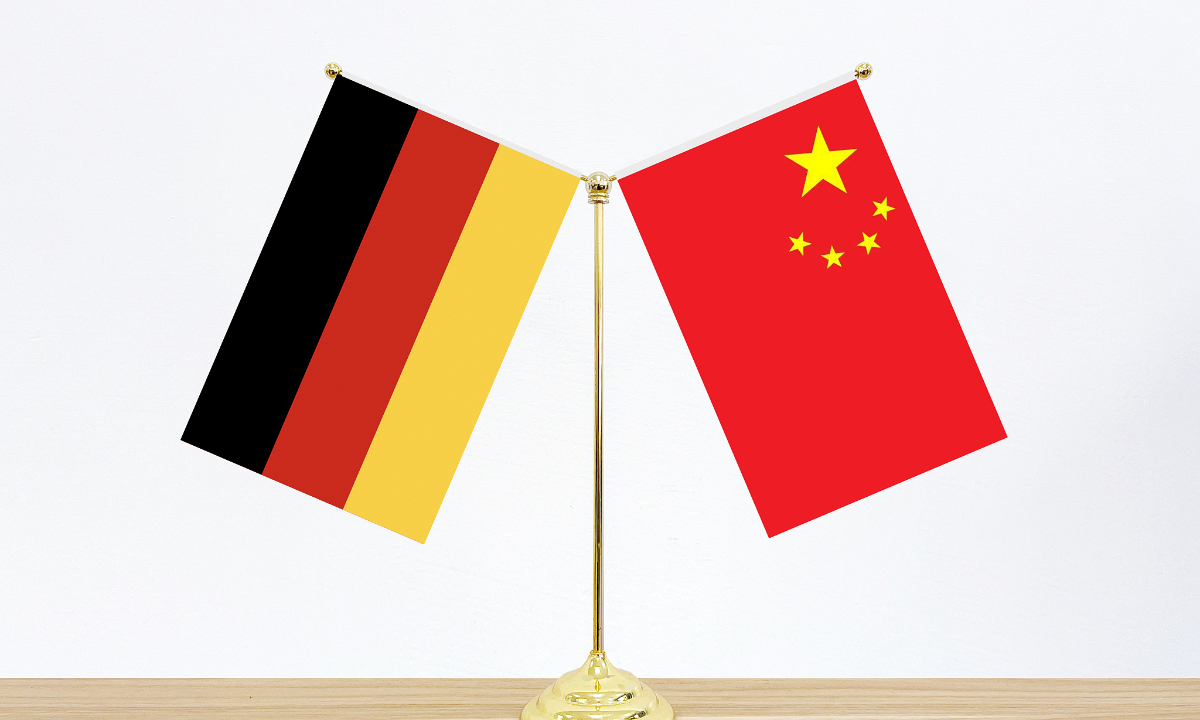
China Germany Photo:VCG
China and Germany have had frequent economic and trade exchanges and cooperation recently, with the AHK Greater China Xceleration Days 2024 set to take place in Beijing in mid-November, following the eighth Sino-German Automotive Conference held in Munich, Germany recently.
The upcoming three-day event in Beijing attracts the attendance of nearly 1,000 business leaders globally, according to a press release the German Chamber of Commerce in China sent to the Global Times on Tuesday.
German companies will take the opportunity to gain an in-depth understanding of Beijing's business environment and seek cooperation opportunities, it said, noting that the AHK Greater China Xceleration Days 2024 aim to boost cooperation between the Chinese and German business communities and boost sustained development.
German investment in China reached a record 7.3 billion euros ($7.89 billion) in the first half of 2024, the Xinhua News Agency reported, citing the Central Bank of Germany.
This highlights German companies' confidence and optimism regarding the Chinese market's positive prospects.
As the 7th China International Import Expo (CIIE) approaches, German companies are also leveraging the platform to align their development with the demands of the Chinese market. Renowned German companies such as Bayer, Siemens, Mercedes-Benz and Volkswagen have confirmed their participation, according to the CIIE website.
"Germany is the largest economy in the EU. Increased economic exchanges and cooperation between China and Germany will inject important impetus into the healthy development of China-EU economic and trade relations," said Feng Zhongping, director of the Institute of European Studies at the Chinese Academy of Social Sciences.
Amid some EU politicians' hype about "de-risking" toward China, more exchanges between China and Germany will help control trade friction between China and the EU as a whole and ensure the stability of industrial and supply chains, Feng said.
He blasted the European Commission's plan to impose tariffs on China-made electric vehicles (EVs), which he said was typical protectionism. He said that China firmly opposes this move and some EU members such as Germany oppose it too.
After the European Commission said in early October that it had secured necessary support from member states for its tariff decision, German Finance Minister Christian Lindner posted on X, formerly Twitter, "Tariffs on Chinese electric cars would be wrong ... We have to speak plainly and negotiate with China - but trade wars only have losers," per the Xinhua News Agency.
China's Ministry of Commerce on Monday again warned the EU not to conduct separate negotiations with certain Chinese firms over the prices of Chinese EVs sold in the EU market, while urging the EU to adhere to the existing framework and accelerate talks to achieve substantive progress at an early date.




